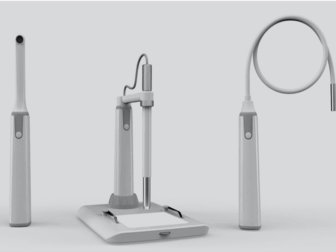Tag - Smart Medical
Cases, Typical , May 23, 2023 , internet of things, IoT Cases, Smart Endoscope, Smart Medical
Revolutionizing Healthcare with Smart Medical Technology
In today’s rapidly evolving world, the healthcare industry is constantly looking for innovative solutions to improve patient care and outcomes. Smart medical technology is at the forefront of this revolution, offering a wide range of advanced tools and devices that are transforming the way healthcare is delivered.
One of the key advantages of smart medical technology is its ability to collect and analyze real-time patient data, allowing healthcare providers to make more informed decisions and deliver personalized care. For example, wearable devices such as smartwatches and fitness trackers can track a patient’s vital signs, activity levels, and sleep patterns, providing valuable insights into their overall health and well-being.
In addition to monitoring patients, smart medical technology also plays a crucial role in diagnosis and treatment. For instance, artificial intelligence (AI) algorithms can analyze medical images such as X-rays and MRIs, helping radiologists detect abnormalities and make more accurate diagnoses. Similarly, telehealth platforms enable healthcare providers to remotely consult with patients, prescribe medications, and monitor their progress, reducing the need for in-person visits and improving access to care.
Smart medical technology is not only benefiting patients but also healthcare providers. Electronic health records (EHRs) and digital health platforms streamline administrative tasks, improve communication between care teams, and enhance the overall efficiency of healthcare delivery. By automating routine processes and reducing paperwork, healthcare providers can spend more time focusing on patient care and less time on administrative tasks.
Furthermore, smart medical technology is revolutionizing the way clinical trials are conducted and new treatments are developed. By leveraging big data analytics and machine learning algorithms, researchers can identify patterns and trends in patient data, accelerating the discovery of new therapies and improving the efficiency of clinical trials. Additionally, virtual reality (VR) and augmented reality (AR) technologies are being used to simulate medical procedures, train healthcare professionals, and educate patients about their conditions, enhancing the overall quality of care.
Despite the many benefits of smart medical technology, there are still challenges that need to be addressed. Data security and privacy are major concerns, as the collection and sharing of sensitive patient information raise ethical and legal issues. Additionally, the cost of implementing and maintaining smart medical technology can be prohibitive for some healthcare organizations, particularly in low-resource settings.
In conclusion, smart medical technology has the potential to revolutionize healthcare by improving patient care, enhancing clinical outcomes, and increasing efficiency. As technology continues to advance, it is essential for healthcare providers, policymakers, and industry stakeholders to collaborate and address the challenges of implementing smart medical solutions, ensuring that all patients have access to high-quality and innovative healthcare services.
